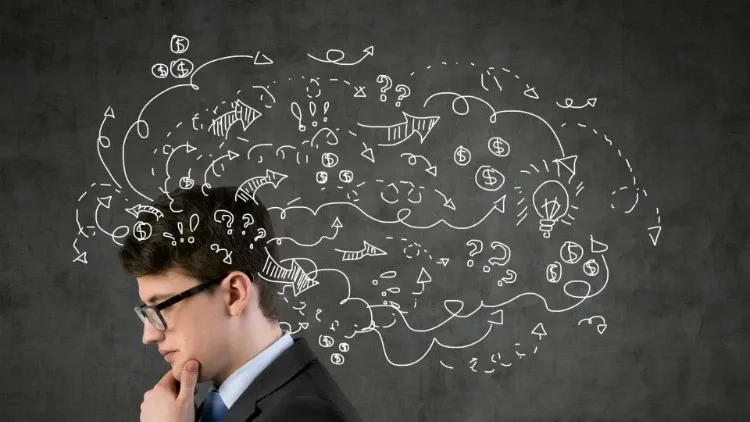This plan includes
- Limited free courses access
- Play & Pause Course Videos
- Video Recorded Lectures
- Learn on Mobile/PC/Tablet
- Quizzes and Real Projects
- Lifetime Course Certificate
- Email & Chat Support
What you'll learn?
- Introduction to E- Waste
- What is E-Waste & facts About E-Waste
- Six Categories of Electronics and Electrical Waste
- E-Waste Composition Statistics
- E-Waste Generation and Recycling Rates at Global Context
- Projected electronic waste generation worldwide from 2019 to 2030
- Global & Regional E-Waste Generation
- Global & Reginal E-Waste Recycling Rate
- Best in E-waste Recycling Countries in World
- Top E-waste Global Statistics
- E- Waste Impact on Human Health
- E-Waste Recycling Process
- Components Retrieved from E-Waste Recycling Process
- Formal and Informal Sector Recycling
- Conventional E Waste Disposals Methods
- Informal Sector Recycling and its impact
- Formal Sector Recycling and Steps involve in Process on Recycling
- Various techniques of Metal Recovery from E-Waste
- Steps involved in recovery on precious metals from E-Waste
- Recovery of Metals from Waste PCBs
- Recovery of Neodymium from hard disk and other Permanent Magnets in E waste
- Recovery of Cobalt and Lithium from Waste Mobile Batteries
- Recovery of Rare Earth Elements from Waste Fluorescent Tubes
- Economics of Recycling
- Indicative Cost and Earning potential of Unorganized Units
- Economics of Recycled Materials
- Saleable Material recovered from 1000 Kg assorted E-waste
- Market value of the Metal recovered from 1000Kg of PCBs
- Possible Potential of Valuable Metal Recovery from E-Waste
- E-Waste Solution and E-Waste Management at Global Context
- Issues and Challenges in E waste
- Stake Holders in E waste management
- E-waste management system in developed countries
- Possible Solution on E waste Management
- Efforts Taken to combat the issue of E Waste at Global Level
- Status of E-Waste Recycling Policy
- International E-Waste Day
- Basel Convention
- Partnership for Action on Computing Equipment (PACE)
- Mobile Phone Partnership Initiative (MPPI)
- World Summit on the Information Society (WSIS) Forum
- International Electro technical Commission (IEC)
- International Telecommunication Union (ITU)
- International Trade Centre (ITC)
- United Nations Environment Programme (UNEP)
- World Health Organization (WHO)
- Switzerland and the Canton of Geneva
Course Overview
In this course you will learn following points in detail:
-
Introduction to E- Waste
-
What is E-Waste & facts About E-Waste
-
Six Categories of Electronics and Electrical Waste
-
E-Waste Composition Statistics
-
E-Waste Generation and Recycling Rates at Global Context
-
Projected electronic waste generation worldwide from 2019 to 2030
-
Global & Regional E-Waste Generation
-
Global & Regional E-Waste Recycling Rate
-
Best in E-waste Recycling Countries in World
-
Top E-waste Global Statistics
-
E- Waste Impact on Human Health
-
E- Waste Impact on Human Health
-
E-Waste Recycling Process
-
E-Waste Recycling Process
-
Components Retrieved from E-Waste Recycling Process
-
Formal and Informal Sector Recycling
-
Conventional E Waste Disposals Methods
-
Informal Sector Recycling and its impact
-
Formal Sector Recycling and Steps involve in Process on Recycling
-
Various techniques of Metal Recovery from E-Waste
-
Steps involved in recovery on precious metals from E-Waste
-
Recovery of Metals from Waste PCBs
-
Recovery of Neodymium from hard disk and other Permanent Magnets in E waste
-
Recovery of Cobalt and Lithium from Waste Mobile Batteries
-
Recovery of Rare Earth Elements from Waste Fluorescent Tubes
-
Economics of Recycling
-
Indicative Cost and Earning potential of Unorganized Units
-
Economics of Recycled Materials
-
Saleable Material recovered from 1000 Kg assorted E-waste
-
Market value of the Metal recovered from 1000Kg of PCBs
-
Possible Potential of Valuable Metal Recovery from E-Waste
-
E-Waste Solution and E-Waste Management at Global Context
-
Issues and Challenges in E waste
-
Stake Holders in E waste management
-
E-waste management system in developed countries
-
Possible Solution on E waste Management
-
Efforts Taken to combat the issue of E Waste at Global Level
-
Status of E-Waste Recycling Policy
-
International E-Waste Day
-
Basel Convention
-
Partnership for Action on Computing Equipment (PACE)
-
Mobile Phone Partnership Initiative (MPPI)
-
World Summit on the Information Society (WSIS) Forum
-
International Electro technical Commission (IEC)
-
International Telecommunication Union (ITU)
-
International Trade Centre (ITC)
-
United Nations Environment Programme (UNEP)
-
World Health Organization (WHO)
-
Switzerland and the Canton of Geneva
Pre-requisites
- No prior experience is needed. You will learn everything about E Waste Management in this Course
Target Audience
- Beginners who wants to learn about E-Waste: Causes, Impacts, Management & Solution
- Students
Curriculum 39 Lectures 01:59:03
Section 1 : Introduction to E- Waste
- Lecture 2 :
- What is E-Waste & facts About E-Waste
Section 2 : E-Waste Composition and Categories
- Lecture 1 :
- Six Categories of Electronics and Electrical Waste
- Lecture 2 :
- E-Waste Composition Statistics
Section 3 : E-Waste Generation and Recycling Rates at Global Context
- Lecture 1 :
- Projected electronic waste generation worldwide from 2019 to 2030
- Lecture 2 :
- Global & Regional E-Waste Generation
- Lecture 3 :
- Global & Reginal E-Waste Recycling Rate
- Lecture 4 :
- Best in E-waste Recycling Countries in World
- Lecture 5 :
- Top E-waste Global Statistics
Section 4 : E- Waste Impact on Human Health
- Lecture 1 :
- E- Waste Impact on Human Health
Section 5 : E-Waste Recycling Process
- Lecture 1 :
- E-Waste Recycling Process
- Lecture 2 :
- Components Retrieved from E-Waste Recycling Process
Section 6 : Formal and Informal Sector Recycling
- Lecture 1 :
- Conventional E Waste Disposals Methods
- Lecture 2 :
- Informal Sector Recycling and its impact
- Lecture 3 :
- Formal Sector Recycling and Steps involve in Process on Recycling
Section 7 : Various techniques of Metal Recovery from E-Waste
- Lecture 1 :
- Steps involved in recovery on precious metals from E-Waste
- Lecture 2 :
- Recovery of Metals from Waste PCBs
- Lecture 3 :
- Recovery of Neodymium from hard disk and other Permanent Magnets in E waste
- Lecture 4 :
- Recovery of Cobalt and Lithium from Waste Mobile Batteries
- Lecture 5 :
- Recovery of Rare Earth Elements from Waste Fluorescent Tubes
Section 8 : Economics of Recycling
- Lecture 1 :
- Indicative Cost and Earning potential of Unorganized Units
- Lecture 2 :
- Economics of Recycled Materials
- Lecture 3 :
- Saleable Material recovered from 1000 Kg assorted E-waste
- Lecture 4 :
- Market value of the Metal recovered from 1000Kg of PCBs
- Lecture 5 :
- Possible Potential of Valuable Metal Recovery from E-Waste
Section 9 : E-Waste Solution and E-Waste Management at Global Context
- Lecture 1 :
- Issues and Challenges in E waste
- Lecture 2 :
- Stake Holders in E waste management
- Lecture 3 :
- E-waste management system in developed countries
- Lecture 4 :
- Possible Solution on E waste Management
Section 10 : Efforts Taken to combat the issue of E Waste at Global Level
- Lecture 1 :
- Status of E-Waste Recycling Policy
- Lecture 2 :
- International E-Waste Day
- Lecture 3 :
- Basel Convention
- Lecture 4 :
- World Summit on the Information Society (WSIS) Forum
- Lecture 5 :
- International Electro technical Commission (IEC)
- Lecture 6 :
- International Telecommunication Union (ITU)
- Lecture 7 :
- International Trade Centre (ITC)
- Lecture 8 :
- United Nations Environment Programme (UNEP)
- Lecture 9 :
- World Health Organization (WHO)
- Lecture 10 :
- Switzerland and the Canton of Geneva
Our learners work at
Frequently Asked Questions
How do i access the course after purchase?
It's simple. When you sign up, you'll immediately have unlimited viewing of thousands of expert courses, paths to guide your learning, tools to measure your skills and hands-on resources like exercise files. There’s no limit on what you can learn and you can cancel at any time.Are these video based online self-learning courses?
Yes. All of the courses comes with online video based lectures created by certified instructors. Instructors have crafted these courses with a blend of high quality interactive videos, lectures, quizzes & real world projects to give you an indepth knowledge about the topic.Can i play & pause the course as per my convenience?
Yes absolutely & thats one of the advantage of self-paced courses. You can anytime pause or resume the course & come back & forth from one lecture to another lecture, play the videos mulitple times & so on.How do i contact the instructor for any doubts or questions?
Most of these courses have general questions & answers already covered within the course lectures. However, if you need any further help from the instructor, you can use the inbuilt Chat with Instructor option to send a message to an instructor & they will reply you within 24 hours. You can ask as many questions as you want.Do i need a pc to access the course or can i do it on mobile & tablet as well?
Brilliant question? Isn't it? You can access the courses on any device like PC, Mobile, Tablet & even on a smart tv. For mobile & a tablet you can download the Learnfly android or an iOS app. If mobile app is not available in your country, you can access the course directly by visting our website, its fully mobile friendly.Do i get any certificate for the courses?
Yes. Once you complete any course on our platform along with provided assessments by the instructor, you will be eligble to get certificate of course completion.
For how long can i access my course on the platform?
You require an active subscription to access courses on our platform. If your subscription is active, you can access any course on our platform with no restrictions.Is there any free trial?
Currently, we do not offer any free trial.Can i cancel anytime?
Yes, you can cancel your subscription at any time. Your subscription will auto-renew until you cancel, but why would you want to?
Instructor

9326 Course Views
8 Courses



 Tech & IT
Tech & IT
 Business
Business
 Coding & Developer
Coding & Developer
 Finance & Accounting
Finance & Accounting
 Academics
Academics
 Office Applications
Office Applications
 Art & Design
Art & Design
 Marketing
Marketing
 Health & Wellness
Health & Wellness
 Sounds & Music
Sounds & Music
 Lifestyle
Lifestyle
 Photography
Photography




.jpg)

.jpg?crop=smart&width=600&height=400)
.jpg?crop=smart&width=600&height=400)
.jpg?crop=smart&width=600&height=400)
.jpg?crop=smart&width=600&height=400)
.jpg?crop=smart&width=600&height=400)

.jpg?crop=smart&width=600&height=400)





.jpg)





